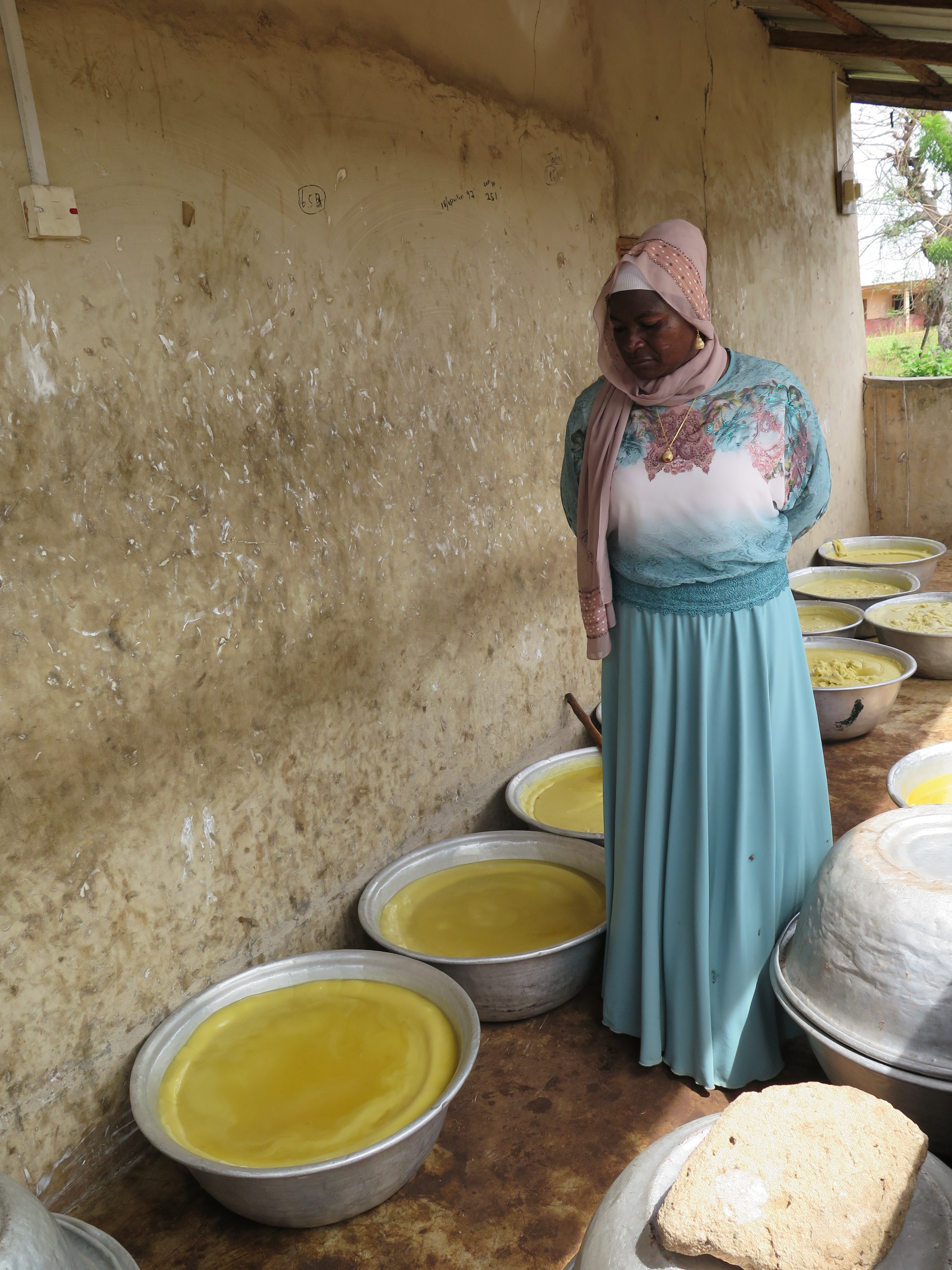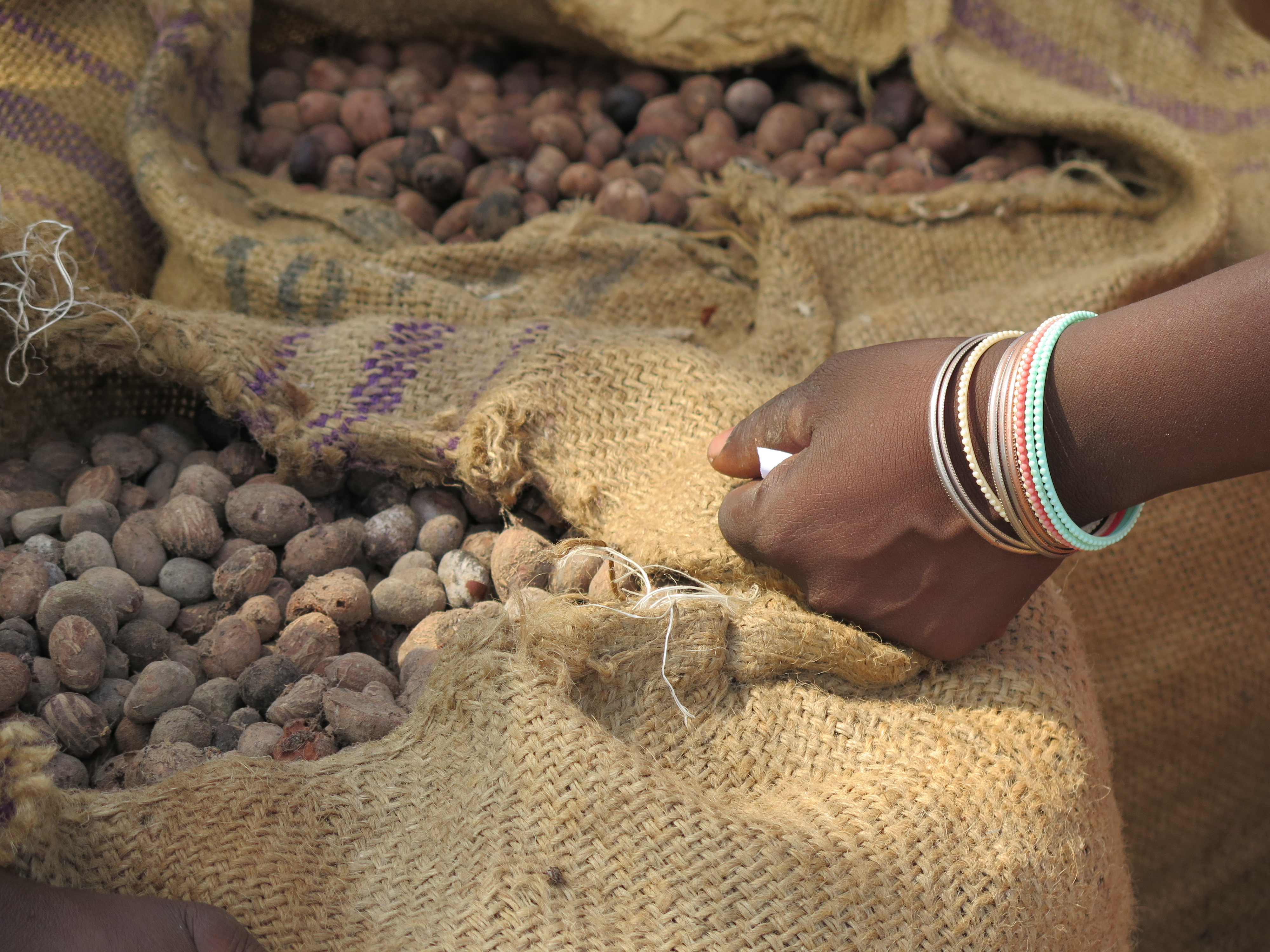
Member Spotlight: Burt’s Bees, USAID’s Trade Hub Collaborate to Boost Women’s Economic Opportunities in Northern Ghana
January 11, 2022 | By Dennis Bailey

Secretary of Women's Group Evaluating Hand Crafted Shea Butter
Bees are often seen as pests that are best kept at a distance. For smallholder farmers in Ghana who produce shea butter, soon the bees will be welcomed guests. Through a partnership called “SheKeeper,” 1,200 Ghanaian women shea farmers will receive training in beekeeping, allowing them to diversify and substantially increase their incomes, potentially by 10- to 20-fold. It is made possible thanks in part to a $2 million, three-year partnership among the U.S. Agency for International Development’s Ghana Mission, the USAID West Africa Trade & Investment Hub and Burt’s Bees, a U.S. company that sources shea butter and beeswax. The three-year partnership with Burt’s Bees and its shea and beeswax suppliers will introduce beekeeping and expand shea processing capabilities in shea-producing communities in the Northern Region of Ghana. This collaboration helps advance Burt’s Bees’ and USAID’s shared women’s economic empowerment and gender equality priorities. It is implemented by Creative Associates International. Sharon Cromer, USAID’s Ghana Mission Director, welcomed the partnership to improve livelihoods for women by creating new business opportunities.
“This partnership with Burt’s Bees will increase private investment and demonstrate that shea collectors can profitably produce and sell beeswax, shea and honey to meet growing demand for these commodities,” Cromer said. “Additional private investment by Burt’s Bees will create greater economic opportunities and a better quality of life for more of the 16 million women collecting and processing shea across 21 African countries.” Burt’s Bees is leveraging its grant from USAID/Ghana through the Trade Hub to introduce beekeeping and create efficiencies by supporting honey, beeswax and shea production. Crops like shea benefit from pollination from beehives. Shea plants within a two- to three-kilometer radius of the hives increase yields up to 30 percent. This partnership will also upgrade a shea processing facility outside of Tamale, Ghana, that will significantly increase its capacity to produce hand-crafted shea butter and reduce its need for firewood, improving health and safety conditions for workers and mitigating environmental impact.

A Burts Bees-affiliated shea producer in northern Ghana with receipt in hand after selling her shea kernels. Photo credit: Burt’s Bees
In West Africa, shea butter production is traditionally a women’s vocation. An estimated 600,000 women depend on the industry as their only cash income. Burt’s Bees will select at least three women’s groups from within its shea supply chain to pilot this beekeeping project, providing equipment, training, and export market linkages. Burt’s Bees’ suppliers will purchase and export all shea and beeswax sourced from these groups, giving farmers a reliable and sustainable buyer. “The USAID Burt’s Bees SheKeeper activity will foster community and commercial partnerships with shea-producing women’s groups by introducing the multi-generational practice of beekeeping,” says Shannon Hess, Burt’s Bees Director of Responsible Sourcing. “Beekeeping opens opportunities for greater economic empowerment of women and youth and increased biodiversity for future generations.” Through programming, USAID/Ghana and the Trade Hub expect to see the value of shea and beeswax exports, including to the United States, increase by at least $1 million through 2024.
The Trade Hub catalyzes economic growth through co-investing with the private sector to generate new investment, create new jobs and increase the value of regional and international exports from West Africa. In partnership with the private sector, the Trade Hub aims to create at least 60,000 jobs across the West African region – with at least 50 percent of these new jobs dedicated to women. As a supporter of the U.S. government’s Women’s Economic Empowerment Initiative, the Trade Hub not only focuses on the “quantity” of women in the workforce, but also the “qualitative” impact of women by working with businesses to update hiring practices and employ women in decision-making and non-traditional roles. Burt’s Bees, a dermatologist-approved natural skincare brand, uses formulas that are more than 95 percent natural origin, with responsible sourcing, recyclable packaging and no animal testing.